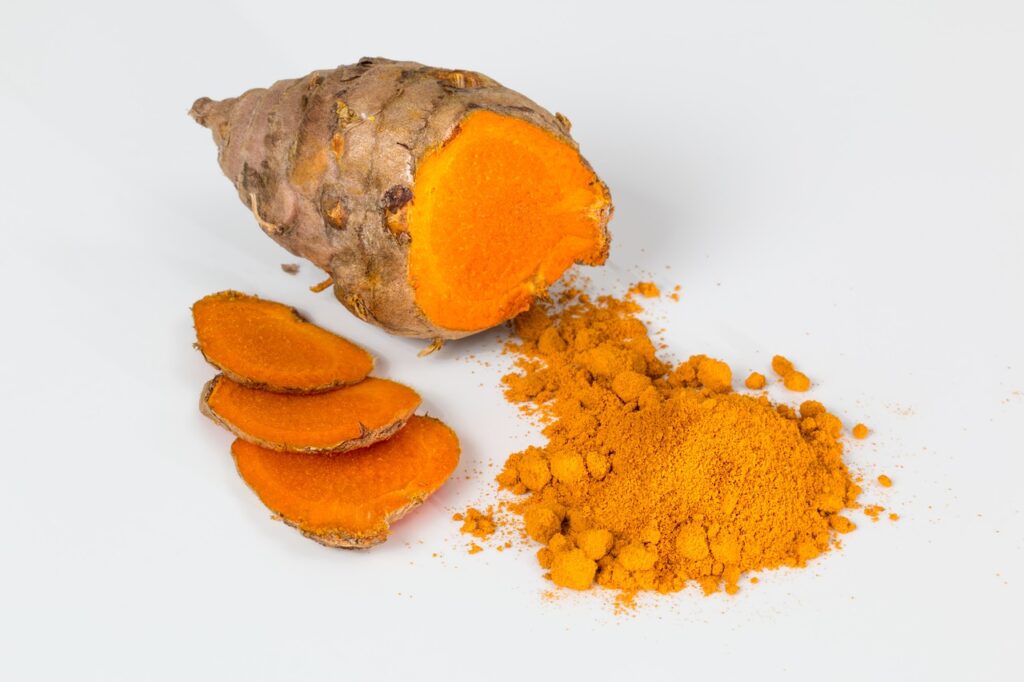For those living with chronic lung conditions such as COPD (Chronic Obstructive Pulmonary Disease) and emphysema, finding natural ways to support lung health can be a top priority. One such natural remedy that has gained attention in recent years is turmeric, a vibrant yellow spice commonly used in Indian and Middle Eastern cuisine. Let’s explore how turmeric may benefit lung health and potentially improve quality of life for those with long-term lung conditions.
The Active Ingredient
Curcumin Turmeric contains a potent compound called curcumin, which is responsible for its bright color and many of its health benefits. Curcumin has been extensively studied for its anti-inflammatory and antioxidant properties, both of which are highly relevant to lung health.
Reducing Inflammation in the Lungs
Chronic inflammation is a hallmark of many lung conditions, including COPD and emphysema. This persistent inflammation can damage lung tissue and contribute to symptoms like coughing, wheezing, and shortness of breath.
Research suggests that curcumin may help reduce inflammation in the lungs by inhibiting the production of pro-inflammatory molecules and promoting the activity of anti-inflammatory compounds in the body.
Combating Oxidative Stress
Oxidative stress occurs when there is an imbalance between harmful free radicals and the body’s ability to neutralize them. This imbalance can lead to cell damage and is thought to play a role in the development and progression of lung diseases.
Curcumin’s potent antioxidant properties may help combat oxidative stress by scavenging free radicals and boosting the body’s natural antioxidant defenses.
Potential Benefit
While more research is needed, some studies have specifically looked at the potential benefits of turmeric and curcumin for individuals with COPD and emphysema:
- A 2018 study published in the International Journal of Chronic Obstructive Pulmonary Disease found that curcumin supplementation improved airway obstruction and reduced inflammation in patients with COPD.
- Another study from 2019, published in the journal Phytotherapy Research, reported that curcumin supplementation led to improvements in lung function and quality of life in individuals with COPD.
- A 2020 review article in the Journal of Clinical Medicine highlighted the potential of curcumin as a complementary therapy for managing COPD, citing its anti-inflammatory and antioxidant effects.
Incorporating Turmeric into Your Diet
If you’re interested in adding turmeric to your diet, there are several ways to do so:
- Use turmeric as a spice in cooking, adding it to curries, soups, stews, and rice dishes.
- Drink turmeric tea or golden milk, a traditional Indian beverage made with turmeric, milk, and other spices.
- Take a turmeric or curcumin supplement, following the recommended dosage on the product label.
It’s important to note that while turmeric is generally considered safe, it can interact with certain medications and may not be suitable for everyone. Always consult with your healthcare provider before starting any new supplement regimen.
Final Words
Turmeric, with its potent active compound curcumin, may offer natural support for lung health in individuals with long-term conditions like COPD and emphysema. By reducing inflammation, combating oxidative stress, and potentially improving lung function, turmeric could be a valuable addition to a lung-healthy lifestyle.
As with any natural remedy, it’s crucial to work with your healthcare team to determine if turmeric is right for you and to ensure it complements your existing treatment plan.














